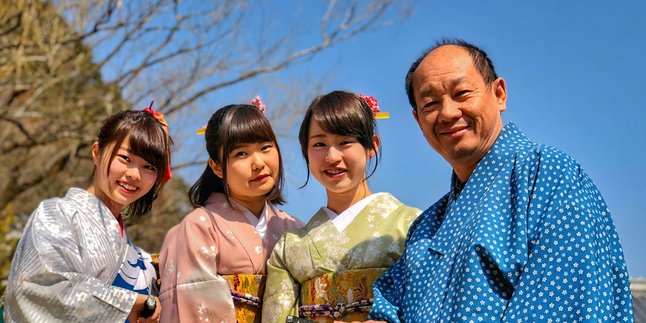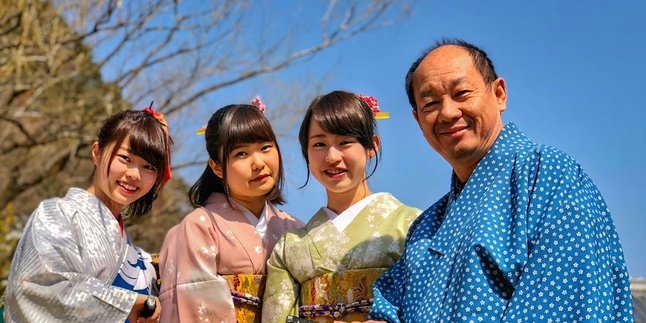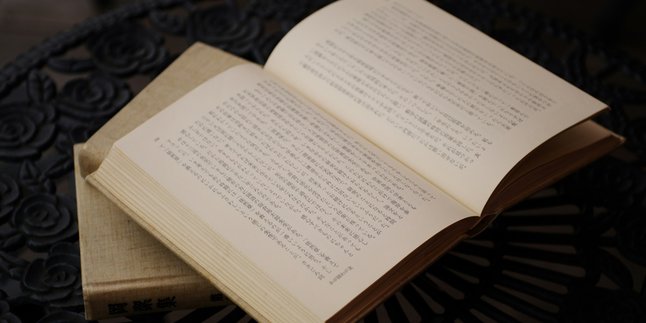Kapanlagi.com - Love is one of the deepest feelings. Many people try to express their love to their loved ones. One of the simplest ways is through words like "I love you". Not only in Indonesian, "I love you" in Japanese can also be an alternative to express feelings to loved ones.
In fact, the phrase "I love you" in Japanese can be a simple yet unique way to express feelings. So far, in expressing love in Japanese, most people may only know "aishiteru". However, it turns out that not only "aishiteru", there are still several variations of phrases that also have similar meanings in Japanese.
Curious about the variations of "I love you" in Japanese? To find out, just read the following review.
1. Aishiteru (I Love You)

Aishiteru (I Love You) (credit: unsplash)
As mentioned earlier, "aishiteru" is the most common and well-known expression for "I love you" in Japanese. In addition, Ai Shiteru is also considered the strongest and deepest expression of "I love you" in Japanese.
Literally, the word "ai" in Japanese means 'love'. Meanwhile, the word "shiteru" in Japanese is a shortened form of the verb "aishiteimasu", which means "I love you". Therefore, this expression is very suitable for expressing deep and serious feelings of love.
2. Sukida (I Like You)

Sukida (I Like You) (credit: unsplash)
The word "suki" in Japanese, when translated into Indonesian, means 'like'. However, the use of the word "suki" that means 'like' is more suitable for referring to something that is not a human being. However, the word "suki" can also be used as an expression of 'like' or "I love you" in Japanese towards someone, with the addition of "-da", making it "sukida".
The word "sukida" in Japanese, when interpreted into Indonesian, can mean 'I like you'. Generally, the expression "sukida" can be used for couples who are just starting a relationship (dating).
3. Daisukida (I Really Like You)

Daisukida (I Really Like You) (credit: unsplash)
The third variation of the phrase "I love you" in Japanese is Daisukida. Morphologically, this expression is a combination of two words, "dai" which means 'big', and then "sukida" which means 'like'.
Therefore, the phrase "daisukida" is commonly translated as 'I really like you' (the meaning is deeper than the expression "sukida"). In terms of usage, this expression is often used between couples who are very close to each other.
4. Suki Yanen (I Like You)

Suki Yanen (I Like You) (credit: unsplash)
You can also express "I love you" in Japanese with the phrase "suki yanen". Similar to "sukida", when translated into Indonesian, "suki yanen" also means 'I like you'.
However, the use of "suki yanen" is relatively rare. This is because "suki yanen" is a dialect from Osaka or Kansai. This Japanese expression of "I love you" tends to have a straightforward connotation, a cheerful tone, and is often used as a joke.
5. Boku wa Kimi ni Koishiteru (I'm in Love with You)

Boku wa Kimi ni Koishiteru (I'm in Love with You) (credit: unsplash)
In Japanese, the phrase "koishiteru" literally means 'falling in love'. This word is rarely used compared to the expressions mentioned above. Usually, "koishiteru" is used to express intense feelings of love towards a partner or someone of the opposite sex in a romantic relationship.
To express "I'm in love with you" in Japanese, the phrase "Boku wa kimi ni koishiteru" can be used.
Those are some brief explanations about "I love you" in Japanese. Hopefully, it will be useful and broaden your knowledge, especially for those who are interested in learning Japanese.
(kpl/psp)
Disclaimer: This translation from Bahasa Indonesia to English has been generated by Artificial Intelligence.

















